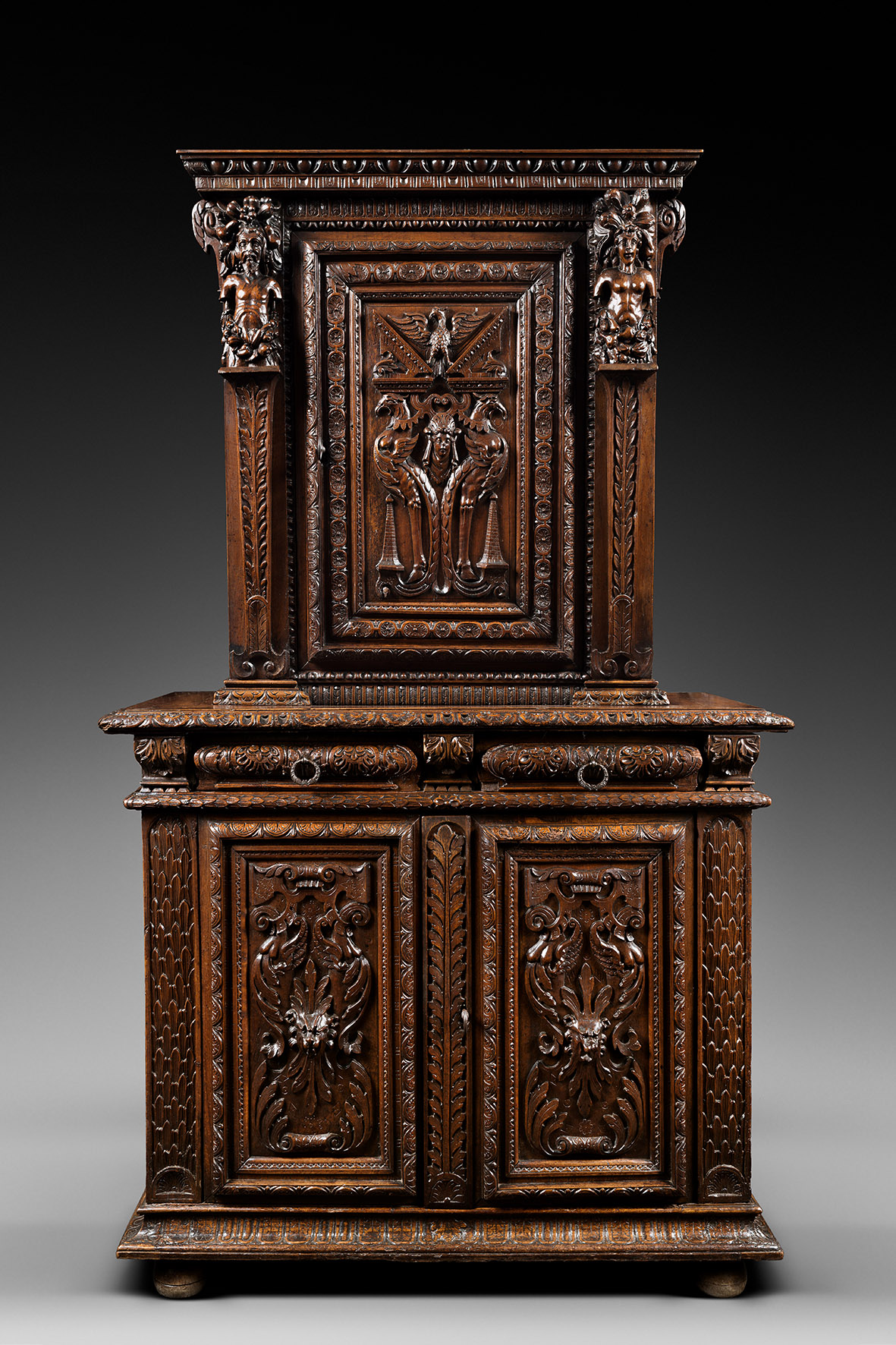Description
This cabinet embody the production of the French second Renaissance with its balanced construction, its sober and elgant lines. The diverse ornaments adorning this cabinet produce a real feeling of richness and movement.
Lower Body
The lower body stands on a moulded base enriched with waterleaves carvings and opens with two door-leaves. This panels are framed by decorative friezes and centred with the head of a lion inside a cut-out leathers and low-relief vegetal scrolls. The body frame is enriched with laurel leaves and with a foliated stem in the centre.
The belt shows three foliated consoles and two palm-leaves ornated drawers.
Upper Body
The upper body show a slight recess and is narrower than the lower body. The moulded door-leaf is framed by friezes and palm leaves.
The panel is adorned with two chimeras back to back with a foliated body topped by a flipped pediment. In the centre is carved a mascaron and an eagle with outstretched wings.
This door-leaf is framed by two terms with foliated sheaths carved in high relief. One depicts a bearded male figure while the other one a female. Both of them are crowned with fruits and flowers. A fruit garland is worn around their hips.
The molded cornice is carved with an egg-and-dart frieze.
The lateral panels of the cabinet are enriched by roses.
The decor of this cabinet is divided into independant registers framed by prominent mouldings. With this partition the drawers are particularly highlighted on the lower body.
Proving the influence of the Italian culture in the ornamental vocabulary of the second half of the 16th century this cabinet uses many antic motifs : palm leaves, acanthus, egg-and-dart, fantastic fauna… This wide spreading of the antic motifs was possible thanks to the engravings in which wood carvers found their inspiration.
The gathering of these elements, the abundance and the quality of the sculptures make this cabinet from the second French Renaissance quite remarkable. The very fine walnut wood used for its making and its delicate patina are noteworthy.
Literature
Jaques THIRION, Le mobilier du Moyen-Age et de la Renaissance en France, Edition Faton, 1998
J.BOCCADOR, Le Mobilier français à la Renaissance, Édition d’Art Monelle Hayot, 1988

